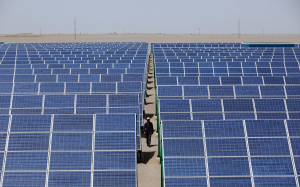YLBHI: 216 cases of assaults on rights defenders in PSN areas in the last 3 years
An advocacy staff at the YLBHI Legal Aid Foundation has has revealed a disturbing record of approximately 216 assaults against human rights defenders operating in areas designated as National Strategic Projects (PSN) in the last three years, with the potential to worsen in 2025 as the number of perpetrators is anticipated to increase.
"At this point, we have documented around 216 cases of attacks against human rights defenders. This figure is not just a number − it represents a severe breach of the rights and safety of those who are safeguarding the voice of the people," Edy Kurniawan said in a discussion at the Jakarta Legal Aid Institute in Jakarta on Monday, February 17, 2025.
He pointed out that, historically, police forces have been the dominant actors in these cases. However, Kurniawan noted that the present climate is marked by a worrying trend:
- Escalation of violence: The existing pattern of violent assaults is expected to intensify as more actors become involved.
- Militarization: With increased militarization across all sectors, the conflict is likely to
escalate further, echoing dark episodes reminiscent of the New Order era.
- Potential for kidnappings and enforced disappearances: In addition to overt
violence, there are growing concerns about the resurgence of tactics such as
kidnappings and forced disappearances, which were common during previous
regimes.
Kurniawan emphasized that the current trajectory signals a critical need for immediate action.
"If the trend continues, we could see a significant uptick not only in acts of violence, but also in other forms of repression that directly threaten the democratic space and the safety of those defending human rights," he said.
Kurniawan also touched upon policies that blur the lines between state responsibilities and commercial interests − such as proposals to grant mining concessions to universities. He argued that such policies not only undermine the integrity of education − a fundamental pillar of national development as enshrined in the Constitution − but also risk transforming academic institutions into extractive entities.
"Our education system is meant to cultivate a well-informed and ethical citizenry, not to serve as a vehicle for resource extraction or corporate interests. These dual challenges − escalating violence against human rights defenders and the commercialization of education − threaten to erode the very foundations of our society," he said.
Already have an account? Sign In
-
Start reading
Freemium
-
Monthly Subscription
30% OFF$26.03
$37.19/MonthCancel anytime
This offer is open to all new subscribers!
Subscribe now -
Yearly Subscription
33% OFF$228.13
$340.5/YearCancel anytime
This offer is open to all new subscribers!
Subscribe now






